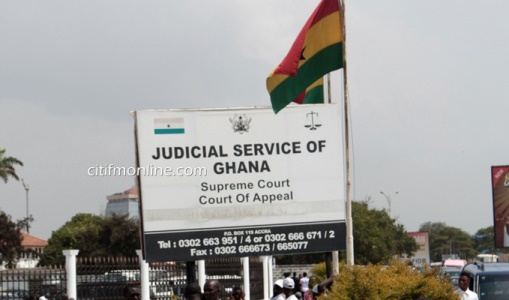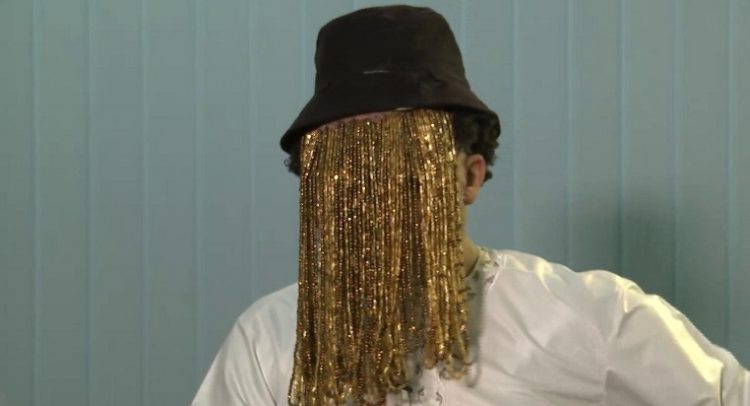
A Ghanaian citizen, Emmanuel Korsi Senyo, has gone to the Supreme Court seeking to discredit the work of the Disciplinary Committee of the General Legal Council (GLC).
This comes on the back of a three-year ban the council handed human rights lawyer, Francis Xavier-Sosu, for overcharging a client and also advertising his services on social media.
Korsi Senyo in his writ is seeking a declaration that the General Legal Council’s failure to prescribe the rules for its Disciplinary Committee as required by the Legal Profession Act, 1960 breaches the 1992 Constitution.“A declaration that the failure by the Defendant [General Legal Council] to prescribe the rules of procedure for its Disciplinary Committee in a Legislative Instrument as required by Section 19(1) of the Legal Profession Act, 1960 (Act 32) is in breach of Articles 23 and 296(c) of the 1992 Constitution as relates to the right to a fair hearing of matters before the Defendant’s Disciplinary Committee as affects parties appearing before same and the requirement by the Constitution that a person or authority vested with discretionary power shall publish regulations to govern the exercise of the discretionary power,” Senyo stated in his writ.
He also wants the Supreme Court to declare that the criminal offences contained “in Sections 19(5) and (7) of the Legal Profession Act, 1960 (Act 32) are in breach of Article 19(11) of the 1992 Constitution because the said offences are not defined.”
The GLC earlier in June banned Francis Xavier-Sosu, a renowned Human Rights lawyer, from practicing as a lawyer for three years, for overcharging a client, one Francis Agyare, when he represented him in a Human Right case in Accra.
It said that, within the 3-year period, Lawyer Xavier-Sosu “shall not hold himself out as a Legal Practitioner or attend Chambers, or render, or purport to render any professional legal service to any person whomsoever, wheresoever.”
According to the General Legal Council, Lawyer Xavier-Sosu charged his client GH¢50,000, which was “excessive” and an “overestimation” for the services rendered, although he [Sosu] had told the client he was offering his legal services for free.
The embattled lawyer who had earlier appealed the council’s decision subsequently applied for a stay of execution of his 3-year ban.
Below are the rest of the reliefs sought by Emmanuel Korsi Senyo:
- A declaration that Section 16(1) of the Legal Profession Act, 1960 (Act 32) and the Legal Profession (Professional Conduct And Etiquette) Rules, 1969 (LI 613) are in breach of Article 23 of the 1992 Constitution as Act 32 and LI 613 do not define “grave misconduct in a professional respect” but yet prescribes punishment for lawyers found guilty of “grave misconduct in a professional respect”, thereby breaching the affected lawyer’s right to know the nature and ingredients of the offence he is being charged with.
- A declaration that the Defendant’s Disciplinary Committee lacks jurisdiction to enforce Section 19(5) and (7) of the Legal Profession Act, 1960 (Act 32) against any lawyer as same is in breach of Article 88(3) and (4) of the 1992 Constitution which vests the prosecution of criminal offences in the Attorney-General.
- A declaration that the Defendant’s Disciplinary Committee lacks jurisdiction to enquire into Section 19(5) and (7) of the Legal Profession Act, 1960 (Act 32) against any lawyer as same is in violation of Article 19(1) of the 1992 Constitution which vests the enquiry into criminal offences in the Courts.
- A declaration that Section 17(1) of the Legal Profession Act, 1960 (Act 32) is in violation of Article 23 of the 1992 Constitution by virtue of the fact that the composition of the Disciplinary Committee denies lawyers appearing before the Disciplinary Committee a fair hearing.
- A declaration that Rule 2 of the Legal Profession (Professional Conduct And Etiquette) Rules, 1969 (LI 613) violates Article 21(1)(a) of the 1992 Constitution with respect to a lawyer’s right to free speech and expression.
- A declaration that Rule 8 and 9(9) of the Legal Profession (Professional Conduct and Etiquette) Rules, 1969 (LI 613) violates Article 24(1) of the 1992 Constitution as the said Rules 8 and 9(9) of LI 613 violate a lawyer’s economic rights.
- An order of interlocutory injunction restraining the Defendant’s Disciplinary Committee from hearing any disciplinary matters until this suit is concluded.
- Any other order(s) that this Honourable Court may deem fit to make.
–
By: Godwin Akweiteh Allotey/citifmonline.com/Ghana
Follow @AlloteyGodwin


















Facebook
Twitter
Pinterest
Instagram
Google+
YouTube
LinkedIn
RSS